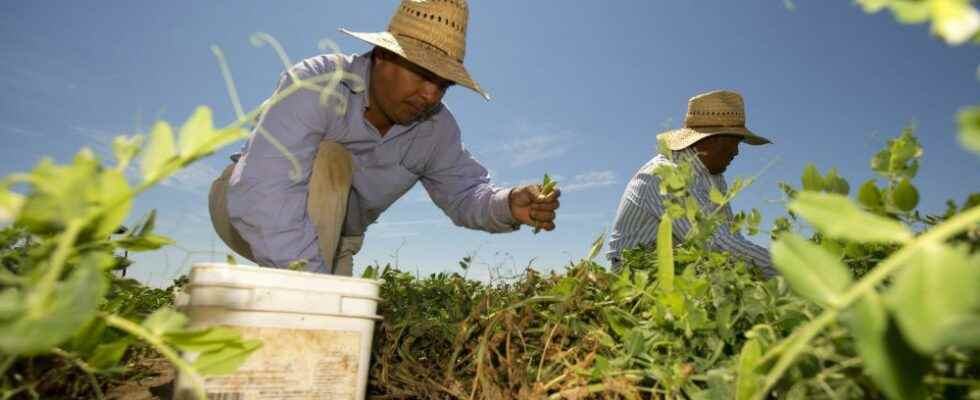A federal government plan to increase the number of foreign workers may boost the labor pool for London’s growing agri-food sector, just as it needs it.
The recent federal budget included cash and an easing of red tape for temporary foreign workers arriving here.
It is just what is needed for a booming sector struggling to fill positions, said Chris Conway, chief executive of Food and Beverage Ontario.
“This is a great initiative for the food sector,” said Conway, adding his agency’s national office worked with the federal government on the plan.
“Labour shortage has been the biggest issue in the sector in recent years. The industry is at a crisis level now. It needs to be addressed and we think this will help.”
Food and Beverage Ontario forecasts there will be 25,000 job vacancies in the agri-food sector in five years in Ontario, Conway said.
Maple Leaf Foods will open a 1,500-job chicken processing plant in London in 2023 and this easing of restrictions may help that plant hire workers, said Sam Caetano, with the United Food and Commercial Workers, who represents some Maple Leaf workers.
“It is a great program. The baby boomers are retiring and they have run and operated these facilities for 30 years. There are not a lot of young people that want these jobs,” Caetano said.
“The only way to fill all these is with foreign workers.”
Maple Leaf Foods “has inquired” about the program with an eye to how it could impact their Ontario production, Caetano said.
The London plant, when it opens, will consolidate production from plants in St. Marys, Toronto and Brampton and workers there have been offered positions here. But Caetano would not be surprised if Maple Leaf had to hire more than 1,000 for its London plant.
“We are encouraged by the government’s commitment to address labor pressures that are being felt across the sector. . . We welcome the support of all levels of government in ensuring that our industry has the workers we need to support the Canadian food system,” Ben Brooks, senior vice-president and general manager of poultry at Maple Leaf Foods, said in an email statement.
“At this time, we are just starting to hire team members to support our new London poultry operation and have not yet determined to what extent we will utilize the temporary foreign workers program.”
London has more than 7,000 workers at more than 60 companies in the agri-food sector.
The United Food and Commercial Workers supports the program as foreign workers become union members. The federal government has standards the workers must meet, including having language and writing skills. The employer must pay a living wage and offer transportation and housing.
“It costs the company a lot of money,” Caetano said of the foreign worker program.
It also has resulted in employers having to offer transportation to Canadian workers as well. Employers also charge foreign workers for housing, he added.
The Cargill beef processing plant in Guelph has 120 foreign workers, Caetano said.
Along with food production workers, fruit and vegetable producers benefit from the program, Conway said. The food and beverage sector has been holding job fairs, and working with colleges and universities in an effort to get more people working in the industry.
“It is a system under pressure,” he said.
As for the federal budget, it announced $29.3 million during three years to create a trusted employer model to cut red tape for the foreign worker program and $48.2 million for agricultural and fish processing employers. In addition, it committed $64.6 million over three years to increase capacity to process employ applications. It also will make $14.6 million available in 2022-23 to make improvements to the quality of employer inspections and hold employers accountable for the treatment of workers, a government of Canada website says.
